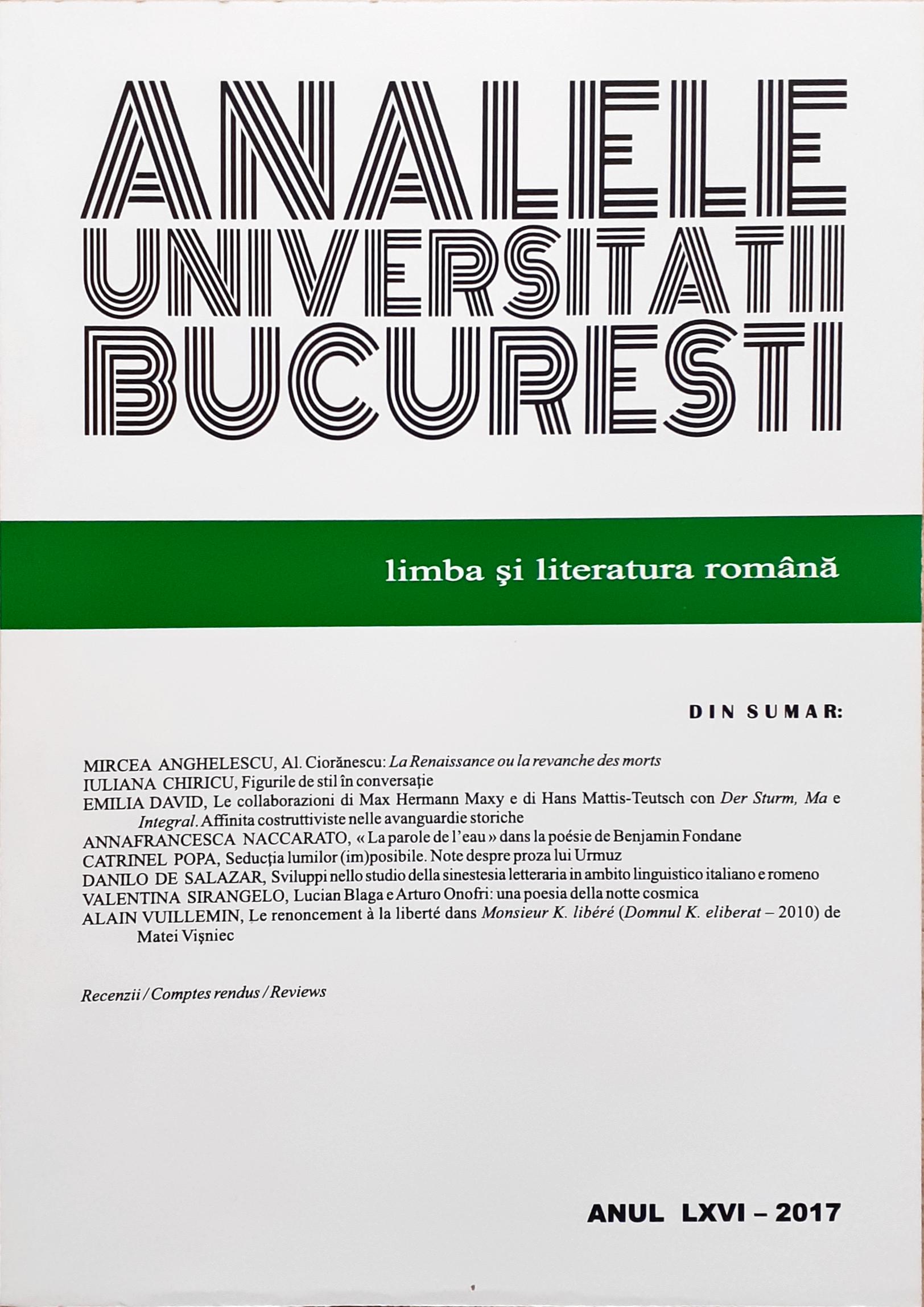Le renoncement à la liberté dans Monsieur K. libéré (Domnul K. eliberat - 2010) de Matei Vişniec
The Renouncing of the Freedom in Monsieur K. libéré (The Release of Mister K.), 2010, by Matei Vişniec
Author(s): Alain VuilleminSubject(s): Romanian Literature
Published by: Editura Universităţii din Bucureşti
Keywords: Vişniec; Novel; Totalitarianism; Freedom;
Summary/Abstract: « Un beau matin, Kosef J. fut libéré… » (“One morning, Kosef J. has been released..”). This is how Monsieur K. libéré (The Release of Mr. K.) begins. This book by Matei Vişniec tells the story of his hero, « Mister K. » or « Kosef J. », a model prisoner detained in a prison located in a middle of nowhere, in a never named country, who, one day, finds out that he is released and who, from now on, learns how to give up of his freedom. The story is unique. The title, The Release of Mister K., is connected to various literary and pictorial references: the Franz Kafka’s writings, an Austro-Hungarian author: The Process (Der Proceß), from 1925, and The Castle (Das Schloß), from 1926, as well as Victor Brauner’s paintings, a painter of Romanian origin, naturalized as French: The Strange Case of Mister K. (L’étrange cas de Monsieur K.), from 1933, and The M.-K.’s Force of Concentration (Force de concentration de M.K.) and Ubu M.K., from 1934. The last work, Ubu M.K., is also connected to Alfred Jarry’s King Ubu, a French theatre play from 1888, concerning the most grotesque forms of the abuse of power. The word “nausée” (“nausea”), used from the very first pages of the Matei Vişniec’s book, reveals another corresponding net with three major writings belonging to the French philosopher, Jean-Paul Sartre: his novel, Nausea, published in 1938, Being and Nothingness, published in 1943, and Existentialism is a humanism, another essay published in 1945. Nevertheless, the text of The Release of Mr. K. takes an opposite stance to the Sartre’s ideas on liberty, free-will and free-choice. This approach aims at pointing out to which extent the totalitarianism, the total oppression of individuals, deny any form of liberty and humanism. Which is, thus, the light shed on this radical form of totalitarian alienation by this bias, by this inversion of the initial postulates, by the multiplication of the tests that Kosef J. needs to deal with and by the detailed description of their unexpected consequences?
Journal: Analele Universităţii Bucureşti. Limba şi literatura română
- Issue Year: LXVI/2017
- Issue No: 66
- Page Range: 123-135
- Page Count: 13
- Language: French

